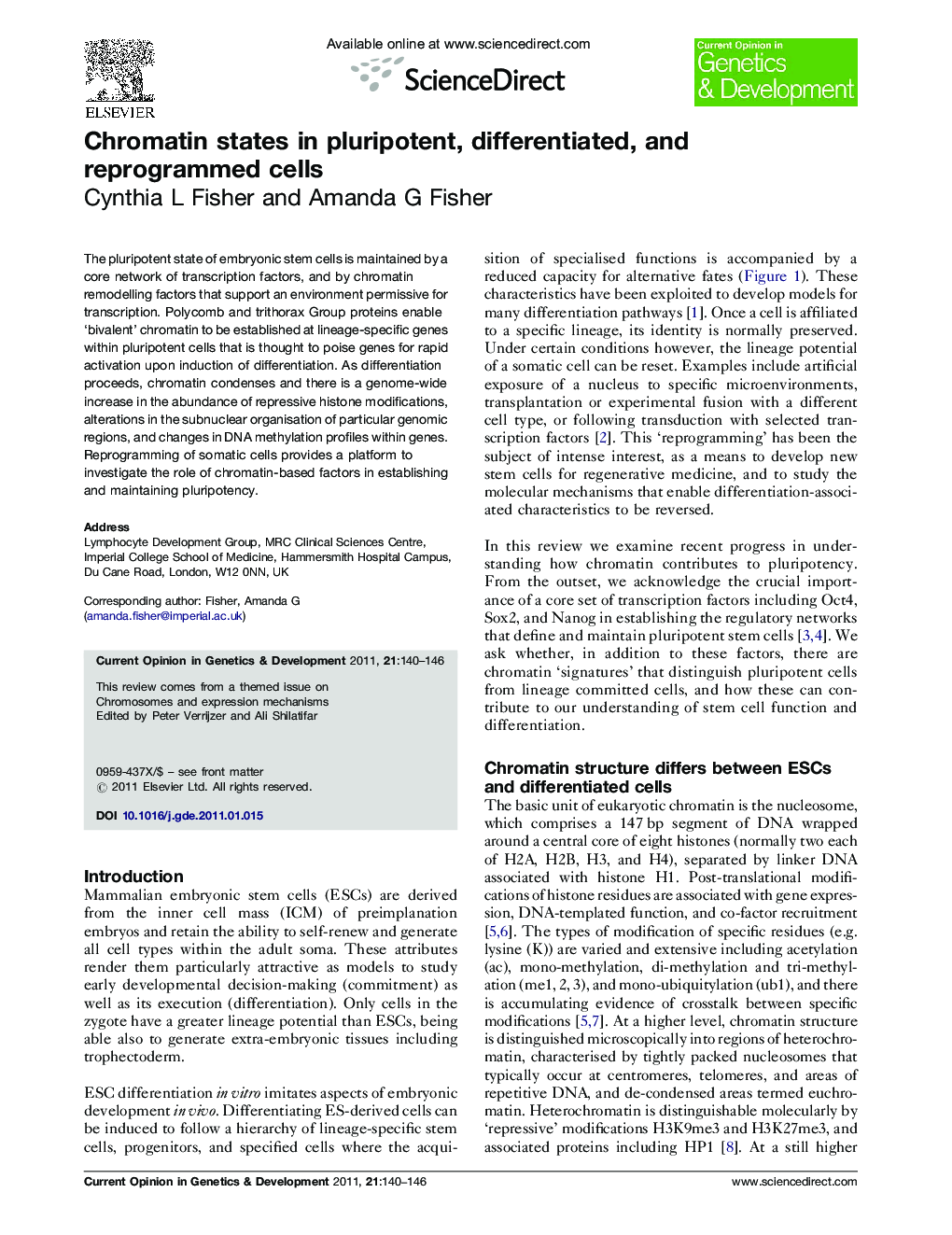| Article ID | Journal | Published Year | Pages | File Type |
|---|---|---|---|---|
| 2784995 | Current Opinion in Genetics & Development | 2011 | 7 Pages |
The pluripotent state of embryonic stem cells is maintained by a core network of transcription factors, and by chromatin remodelling factors that support an environment permissive for transcription. Polycomb and trithorax Group proteins enable ‘bivalent’ chromatin to be established at lineage-specific genes within pluripotent cells that is thought to poise genes for rapid activation upon induction of differentiation. As differentiation proceeds, chromatin condenses and there is a genome-wide increase in the abundance of repressive histone modifications, alterations in the subnuclear organisation of particular genomic regions, and changes in DNA methylation profiles within genes. Reprogramming of somatic cells provides a platform to investigate the role of chromatin-based factors in establishing and maintaining pluripotency.
